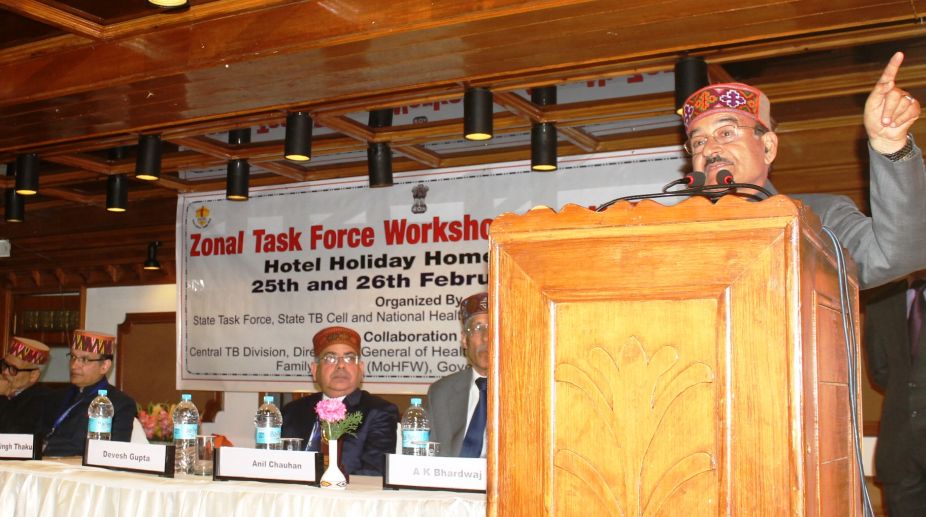Himachal verifies 99.84% family members on e-Parivar
Out of a total of 75,18,296 family members, 75,05,913 have been verified under this initiative, he added.

Himachal Health & Family Welfare Minister Kaul Singh Thakur attending two days workshop of Zonal Task Force (North Zone) (PHOTO: SNS)
Himachal Pradesh would achieve its target of completely eradicating tuberculosis (TB) disease by 2023, two years ahead of the fixed target of 2025, Health Minister Kaul Singh Thakur said on Sunday.
Thakur said Himachal is a front-runner in TB control activities and had created a good impression at national level. “The government is committed for improving the health of its people and has started various schemes which were being implemented successfully,” he said, adding on Sunday, the health indicators of the state are best in the country.
Advertisement
Thakur said India contributed over 4th of total cases of TB in the World and 28 lakhs cases and 4.8 lakh deaths are reported every year in India which reveals the story of disease burden. “This is despite the fact that since 1997, more than 19 million patients in India are put on treatment and over 3.4 million additional lives has been saved so far due to concerted efforts,” he said.
Advertisement
He expressed happiness that program performance, in terms of case detection rate and treatment success rate of Himachal Pradesh as it is above the desired National level since the inception of program and said still we were striving hard to achieve more.
Thakur said in Himachal near two lakh TB patients have been treated since 1997 under the program and there was no doubt the DOTS is synonymous with effective TB control worldwide.
“Revised National Tuberculosis Control Program (RNTCP) had been implemented in Himachal Pradesh in phased manner. Hamirpur was the first district to take up the activity in 1995 followed by Kangra and Mandi in 1998,” he said, adding entire state had been covered in January, 2002.
Health Minister said Himachal had decentralized the TB diagnostic and treatment services, we had 72 TB units across 74 health blocks. “Remaining two health blocks would soon be made functional as TB Units and all allopathic health institutions are functioning peripheral health institutions,” he added.
Advertisement